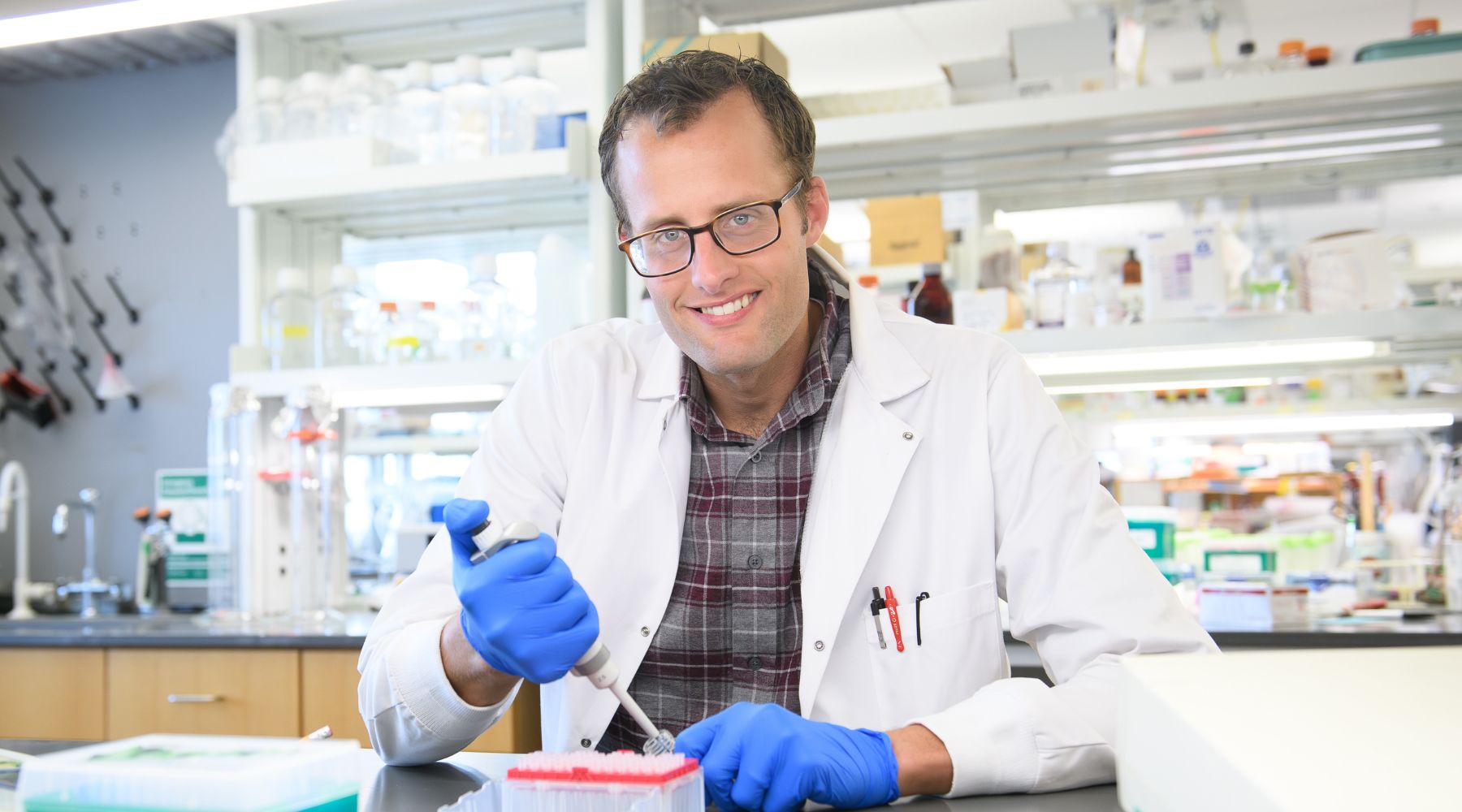A new five-year National Institutes of Health grant will help an Oklahoma Medical Research Foundation scientist study muscle loss.
With the $1,017,000 grant, Jordan Fuqua, Ph.D., hopes to better understand the normal muscle loss that occurs with aging and the accelerated atrophy that follows hospitalization or prolonged bedrest in older people.
Ultimately, he hopes to find new therapeutic treatments to delay these conditions.
Fuqua received a Pathway to Independence Award, which supports promising early career researchers. It provides $234,000 for a two-year mentored phase at OMRF, followed by $783,000 for three additional years once Fuqua establishes an independent lab.
By our 50s, most of us have begun losing muscle mass. This biological process, called sarcopenia, typically becomes more pronounced in our 60s. It can be delayed through strength training and other exercise, but no one escapes it. Over time, sarcopenia increases frailty in older people. Prolonged disuse, often the result of bedrest, magnifies the effects.
Interestingly, the lab in which Fuqua works at OMRF that proteins are actually produced at a higher rate in older muscles than in younger muscles.
“These discoveries and others lead us to think some of those extra proteins being produced are becoming dysfunctional,” said Fuqua, who has trained in the lab of OMRF’s Benjamin Miller, Ph.D. “So, our focus has shifted from trying to produce more proteins to preserving the existing ones.”
In studies involving aging, inactive mice, Fuqua will test a theory involving a molecule called TFEB, which plays a critical role in preserving protein health in skeletal muscle. He hopes to show that increasing TFEB activity helps maintain muscle function in these mice.
“TFEB controls a process that is a like a garbage disposal for getting rid of damaged proteins,” Miller said. “By getting rid of the damaged proteins, we hope that this cleans the slate for making new proteins that aid muscle recovery.”
The grant, No. 1K99AG086524-01A1, was awarded by the National Institute on Aging, part of the NIH.



